If you want to be an expert world traveler, you should start by traveling to Egypt. The country can be completely overwhelming. It is loud and fast, hot and dirty. It demands your attention and sucks your energy, but it gives back so much more than it takes. If you can learn these lessons and make it through Egypt, there is nowhere in the world you can’t handle. In this post we’ll share 10 travel lessons you’ll learn in Egypt and how they will help you conquer your world travels.
#1. Everyone and no one wants to help you.
This is the hardest thing about being in Egypt. From navigating the chaotic traffic in Cairo to figuring out the ferries in Aswan, you need a lot of help. Unfortunately, you never know who you can trust because everyone seems to want something from you.
Someone may tell you the museum is closed during prayer (it’s not) and then send you to their friend’s perfume shop. Someone might send you to their 100 EGP motorboat instead of the 1 EGP ferry. And sometimes people will actually help you with the right directions, but then ask for a tip for it. These are examples in Egypt, but the truth is there are good people and bad people all over the world.
This isn’t to say you shouldn’t trust people ever. Some people will genuinely help you. It’s just a reminder to remain cautious. Rely on yourself as much as you can and be smart about who you ask for help. We recommend sticking to security guards and police. We also had success going to a vendor (coffee shop, water stand, etc), making a purchase, letting them keep the change and then asking for help.
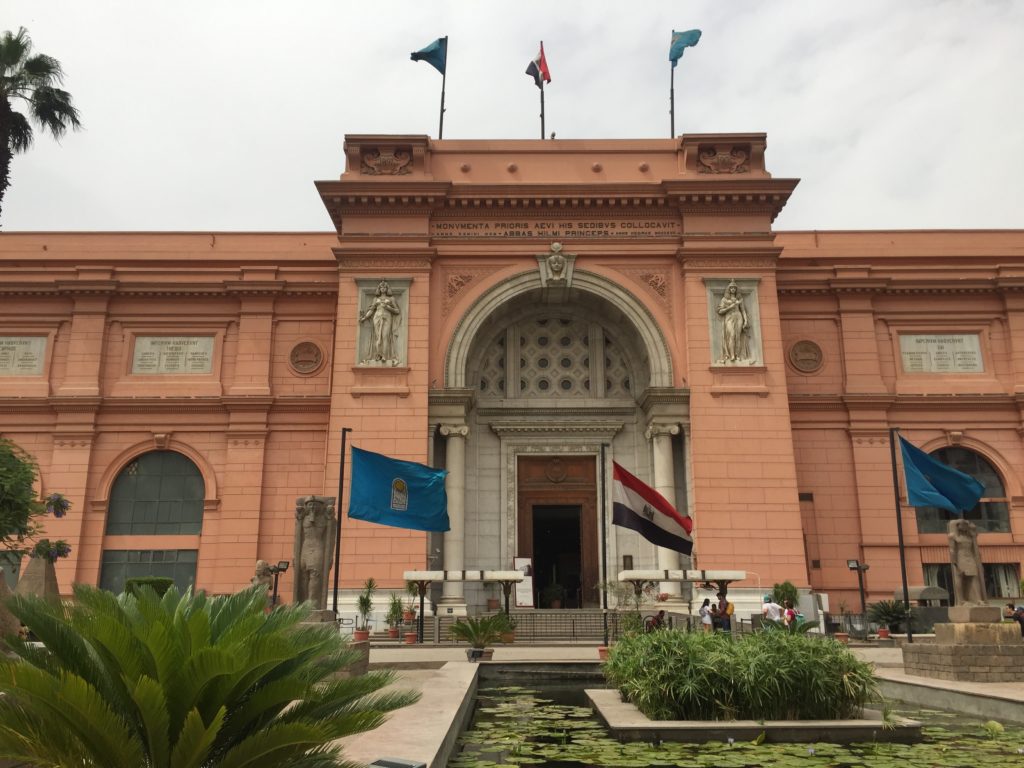
On our way to the Egyptian Museum, we paused for too long trying to cross the street. Someone immediately grabbed us, told us the museum was closed, but we could spend a half hour at a “different museum”, which turned out to be his friend’s perfume store.
#2. Agree on prices first, pay last.
Our tour guide on our Nile Cruise shared a story of a horse carriage driver charging a tourist 1000 EGP (plus tip!) for a 10 minute carriage ride that should have cost under 50 EGP. Surely this is a rare example of a bad egg, but it’s a good reminder of why you should always agree on prices first.
Before you take any service from anyone, be sure to agree on the price. Depending on where you are in the world, this may mean you negotiate a bit. Once you have agreed on the price, don’t pay it until the end of the service. This is to be sure you get the full service you intend to pay for.
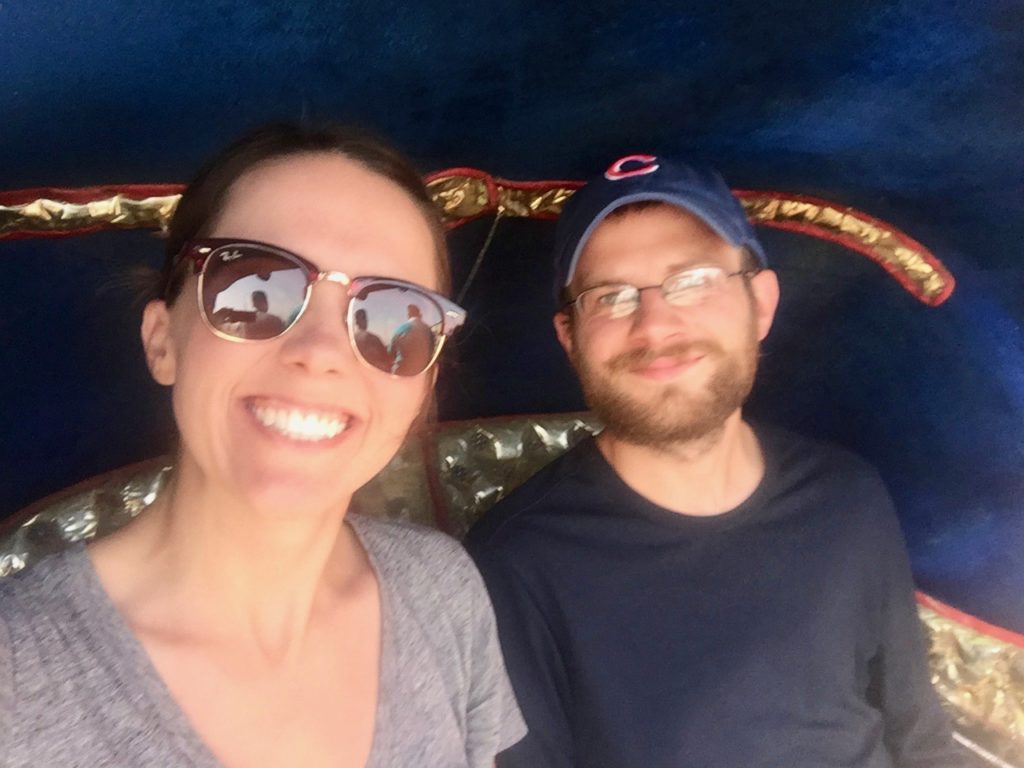
Riding in a horse carriage in Egypt is a very common way to get around. Often there are more horse carriages than cars on any given street.
#3. Know what you have to pay for and what you don’t.
There’s very little regulation around the tourism industry in Egypt, so the rules are a little grey. How much you pay and for what may very based on who’s working that day, what you look like and how informed you are. That’s tourist pricing and it’s alive and well around the world.
In Egypt, you should know exactly what is included with the ticket and what is an additional cost. Walking down the public road from the Great Pyramid to the viewing point should not cost you any money, and don’t let anyone tell you differently. In Southeast Asia, this means figuring out how much people are usually paying for tuktuks from the train station.
Whatever it is, wherever you are, do everything you can to find out exactly what you have to pay for and how much it should cost. This will empower you to push back or walk away if someone is trying to scam you. If you can’t find it online, check with your hotel reception desk, try posting the question on Twitter, or call a travel agency.
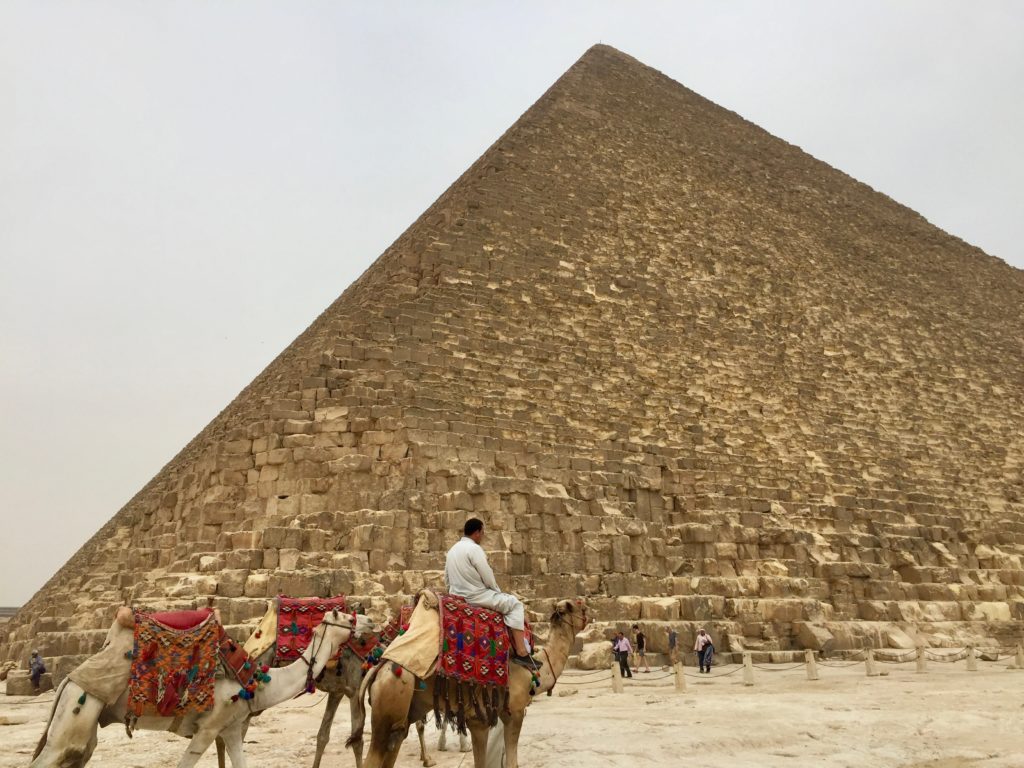
There is a lot of hustling happening at the Pyramids of Giza. It’s hard to find information online, so consider traveling with a guide or asking your hotel for help.
#4. Haggle hard and walk away.
This is actually a skill I recommend learning at the Dubai Souks, which has been the most intense souk (aka market) experience of our travels. But the Khan el-Khalili bazaar in Cairo is a great training ground, too.
In Egypt, every price is negotiable. The price of souvenirs, transportation and even food and drinks is almost always up for discussion. This is true of many products and services all over the world, so always check if that’s the case wherever you’re traveling.
We aren’t expert hagglers, but we have a few tips.
- In markets, aim to pay 25-50% of the original asking price.
- For food and drinks, always go for a bulk discount. Sodas might be 20 EGP, but you can probably get 3 for 50.
- Walk away. Sometimes I really don’t want something and walk away, and they drop the price so much I end up buying it. But if you do want it, definitely walk away and see what you’re offered. Worst case, you go somewhere else or turn around and take the last price they offered. Best case, you get a great deal.
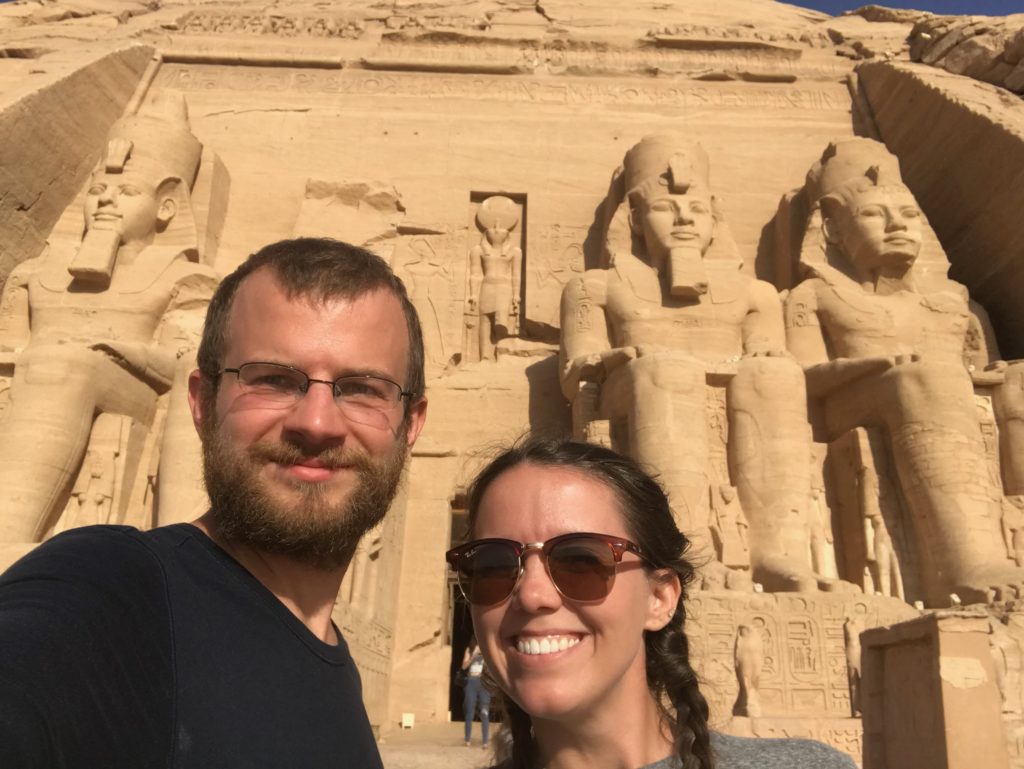
I got these “real!” Ray Ban shades at the Khan el-Khalili bazaar. Starting price: 250 EGP. Actual Price: 100 EGP (~$5 USD!)
#5. If the price is in USD, it’s too expensive.
Egyptians know that $20 sounds a whole lot more reasonable than 350 EGP. I knew it was happening when I was offered a silver necklace with my name in hieroglyphics for $20 from our tour guide, but I bought it anyway. I I knew it was happening in Laos when I signed up for a craft class for $85 USD (+700,000 Laotian Kip, which was probably more than we spent for three full days in Luan Prabang combined.)
I’m not saying you shouldn’t pay it (I do it all the time), just know that you’re paying too much. Once you start talking USD, you’re going to pay more. Unless the local currency is actually USD, always be leery of pricing in USD. So try to talk in the local currency as much as possible.
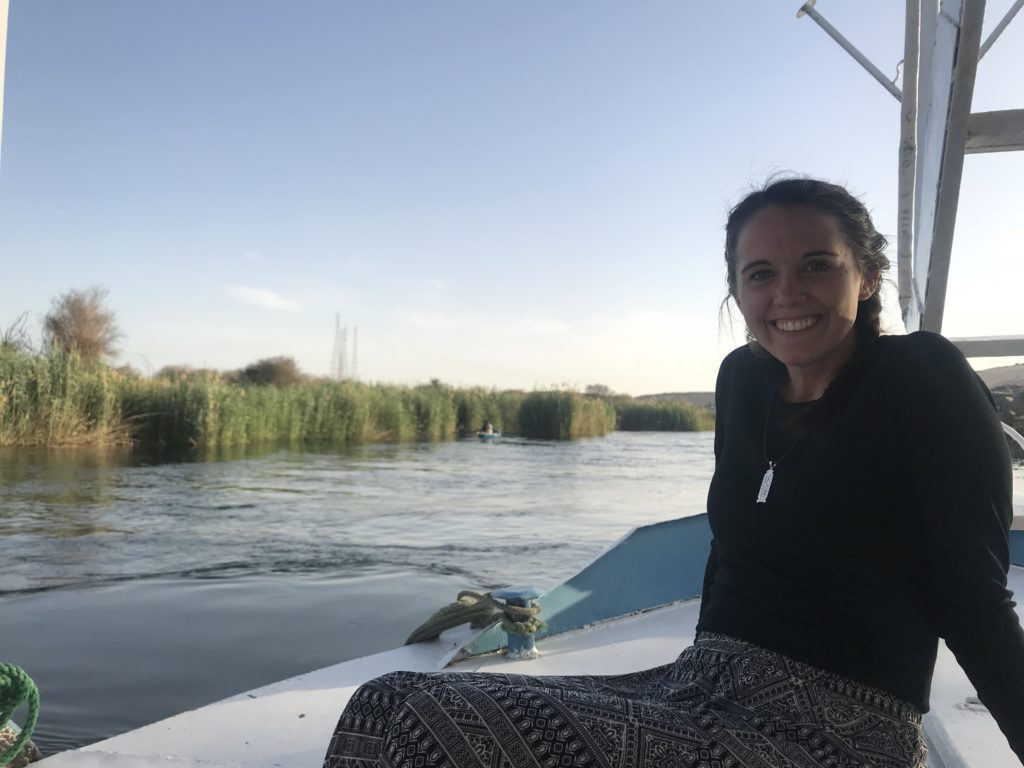
I bought this necklace for $20. He got me because I thought “$20 USD isn’t that much!” But then I realized that was 350 EGP, more than literally anything else we bought in Egypt.
#6. Learn the tip culture.
Pretty much everyone you interact with in Egypt expects a tip. It doesn’t even matter how good the service was or even if you asked for their service. On the street, usually something small, 10-20 EGP, should do the trick. For longer or more upscale services, 50-100 EGP.
Tip culture varies greatly around the world. In Japan, tipping is considered offensive. Waitstaff in USA rely heavily on tips, but that’s not the case in Europe. It’s one of the things we check every time we get to a new place. Figure out who you’re expected to tip and how much, and be sure to factor that into your budget.
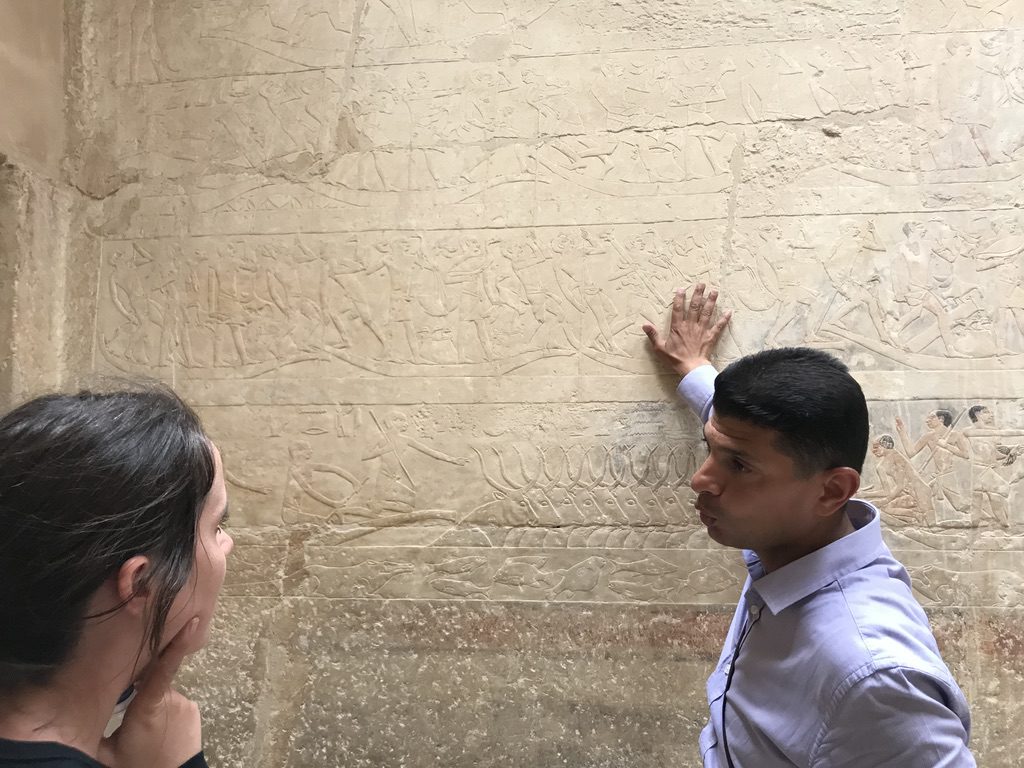
We tipped just about everyone we talked to in Egypt. For tour guides, we usually tipped about 100 EGP per day.
#7. Keep small bills and exact change.
One of the more frustrating things about international travel is the insistence on paying with cash. Everyone only takes cash, and yet no one can ever seem to break your bills. This frustration is doubled when the ATMs are spitting out huge bills that you can’t use and no one will change.
In Egypt, we were always stuck with 100 and 200 bills when we needed to buy water for 7. It reminded us of Cambodia where beers were $0.50 and the ATM gave us $100 bills.
There’s not always a way around this, but your hotel/hostel is usually a good place to start. Our next solution is usually to head to a highly trafficked corporate spot, like a Starbucks or McDonalds, to buy something small and then ask for small bills back. If you’re on a short trip, consider changing bills in advance from your bank at home.
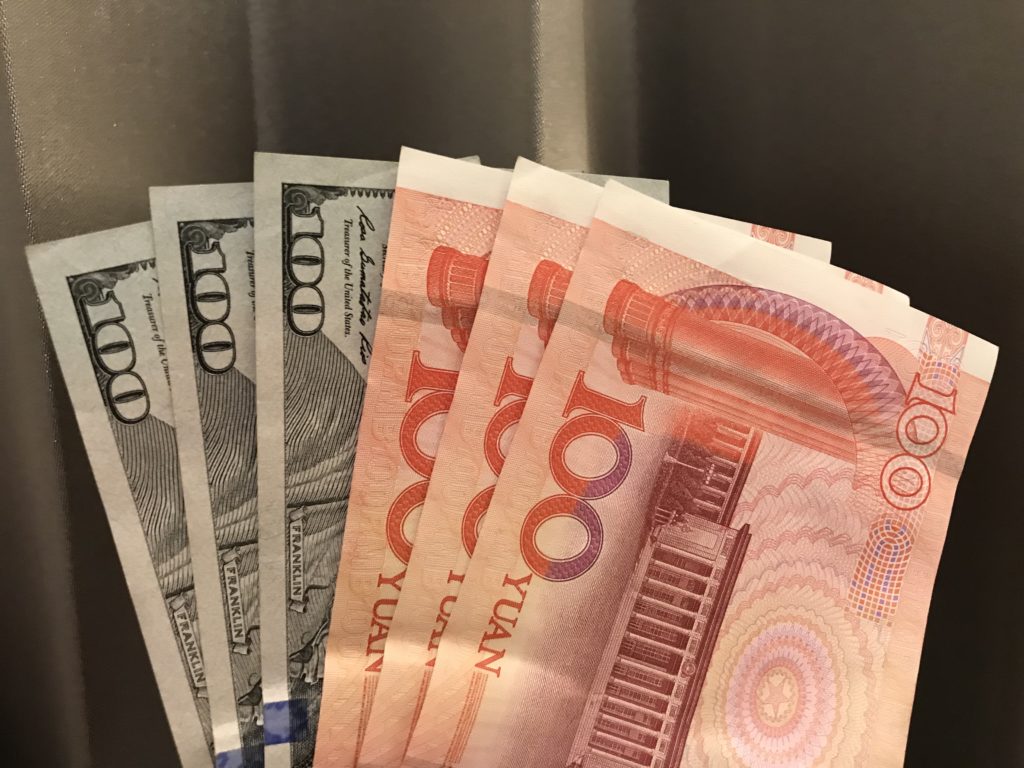
Yeah, I know that neither of these bills are EGP, but you get it. ATMS spit out big bills and it’s annoying.
#8. Dress appropriately.
As a white, non-muslim female in the Middle East, I already stand out. I don’t need to add to that by wearing shorts and a tank top. I always try to observe cultural norms when choosing my clothing.
Of course you can wear whatever you want, but it’s culturally appropriate to keep your shoulders and knees covered. A pair of joggers and a light long sleeve shirt is a great option in Egypt. Stick to light colors, airy fabrics and loose fitting clothes. Ladies, maxi skirts are your best friend, here.
In many areas of the world, dress recommendations are associated with religion, but that’s not always the case. In Medellin, they joke that “only Gingos wear shorts”, and it’s so true. You don’t have to dress like the locals (Kenny isn’t walking around in a gallibaya), but you should consider dressing in line with their cultural norms.
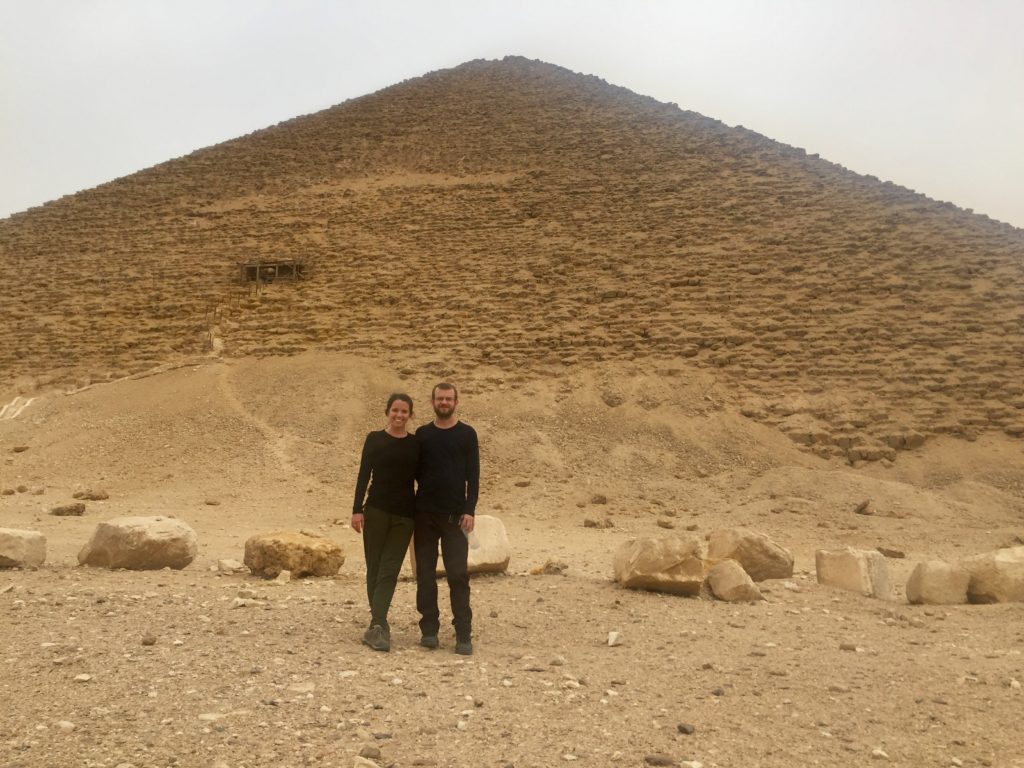
Even in the desert, we wore long sleeves and pants. This is not only about cultural respect, but it’s also great for protecting you from the sun and bugs.
#9. Wear the right shoes.
I know it’s tempting to wear sandals because it’s hot or because they look better with your outfit. Resist the urge! Everywhere in Egypt is dusty. If you’re in the cities, the sidewalks are pretty rugged. If you’re in the desert, you’ll be walking in sand. Go with sturdy, comfortable shoes that can get a little dirty. You’ll be glad you did.
For 10 months of travel, Kenny was always making fun of me for how frequently I talked about what shoes to wear. Everywhere you go, there’s some other challenge about footwear. It’s raining in London. It’s cold in Beijing. There’s holes in the sidewalks in Colombia. Get yourself a pair of shoes you can wear everyday and not think about it.
If you’re looking for shoes that are cute and comfortable, I can’t recommend Adidas Superstars enough. I know, they’re white, but some soapy water every once in a while will keep them decent during your travels. They’re perfect everyday shoes.
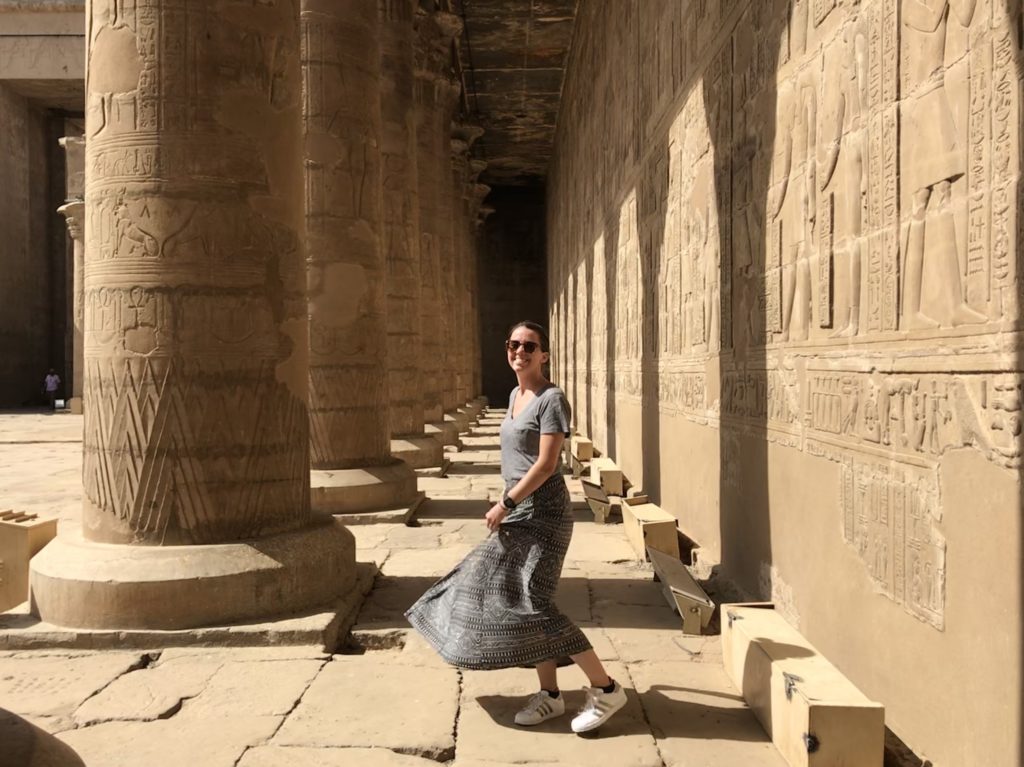
These days, you can find me in my Superstars just about everyday.
#10. Be kind.
We learn to say “thank you” everywhere we go. Egypt was the first place we had to learn “no thank you.” People are constantly peddling us boat rides and scarves and giving us unsolicited directions. It’s easy to get frustrated, but remember to be polite. Say no thank or “la shakran”.
While lots of people are trying to sell you something, a lot of people just want to say hello. They want to know where you’re from. This is especially true for young children, and not just in Egypt. All over the world, we get cheerful hellos from local children excited to practice their English. In Laos and Japan, we were frequently stopped by school children who asked to chat with us in English for school assignments.
Always remember that you’re a guest in their country and you’re an ambassador of your own country. It’s important to be kind always.
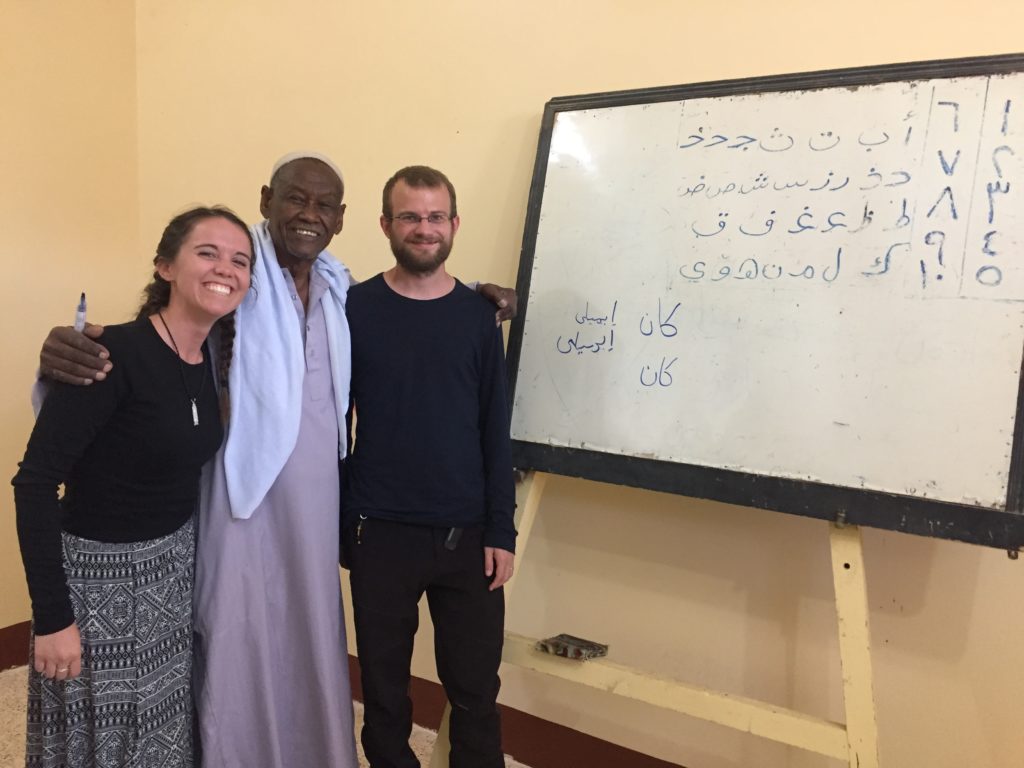
Be kind. Remember that people are good and we’re all more alike than different.
What are some lessons you’ve learned while traveling? Share your feedback in the comments. We’d love to hear it!
